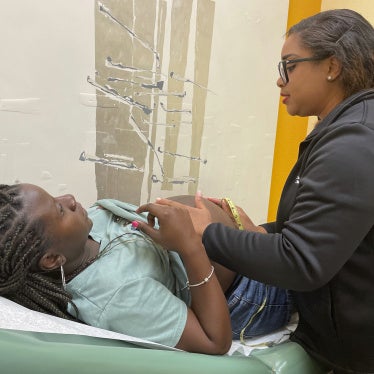The Massachusetts high court’s ruling that the state must extend full marriage rights to same-sex couples is a victory for the principle of equality under law, Human Rights Watch said today. The U.S. federal and state governments must ensure that marriages receive legal recognition without discrimination.
“The court has rightly held that discrimination is as wrong in civil marriage as in any other public institution,” said Kenneth Roth, executive director of Human Rights Watch. “Separate but equal holds true no more in marriage than it did in education.”
On November 18, the Supreme Judicial Court—Massachusetts’ highest court—ruled that the state “has failed to identify any constitutionally adequate reason for denying civil marriage to same-sex couples.” The court required the state legislature to give those couples the rights enjoyed by married people within 180 days.
Governor Mitt Romney, Attorney General Thomas Reilly and members of the state legislature then proposed that the legislature instead create “civil unions” for gay and lesbian couples, providing many of the rights of marriage. Legislators then asked the Supreme Judicial Court for an advisory opinion on whether a law creating such unions—but restricting marriage to heterosexual couples—would meet its requirements.
“The history of our nation has demonstrated that separate is seldom, if ever, equal,” the court held in the advisory opinion. The court maintained that Massachusetts could not create an “unconstitutional, inferior and discriminatory status for same-sex couples.” The court also condemned any difference in rights or any “choice of language” that assigned such couples “to second-class status.”
In a September 2003 briefing paper on equality in civil marriage, Human Rights Watch observed that while civil unions have represented progress, states still have an obligation to equality. Civil unions do not carry the same promises of recognition across international borders that marriage ordinarily implies. The burden is on governments to justify refusing recognition to foreign marriages, but the burden usually—and unfairly—rests on partners in civil unions to justify their recognition abroad.
“States may create a special form of partnership for all couples in addition to the option of marriage,” said Roth. “But civil unions should not be created as a means to deny same-sex couples equal rights.”
The Defense of Marriage Act, enacted by the U.S. government in 1996, prohibits the federal government from recognizing same-sex marriages and allows states to withhold such recognition. An eventual constitutional challenge to this law is likely in light of the Massachusetts ruling.
In 1994 the United Nations Human Rights Committee found in its decision in Toonen v. Australia that discrimination based on sexual orientation is a violation of international human rights. Last year the Human Rights Committee determined that denying government pension benefits to same-sex partners is unacceptable discrimination. The European Court of Human Rights reached a similar conclusion in its 2003 ruling in the case of Karner v. Austria.
Two European countries, the Netherlands and Belgium, recognize full equality in civil marriage. However, same-sex marriages performed in these countries are still not recognized across the European Union.
“The Massachusetts decision will challenge lawmakers to acknowledge that marriage is not exempt from the commitment to equal treatment,” said Roth. “It is discriminatory to refuse to recognize marriages on the basis of sexual orientation.”
Massachusetts will still convene a constitutional convention to decide whether to amend the state’s constitution to prohibit same-sex marriage. However, such an amendment would have to be ratified by the state’s voters and could not take effect until 2006. Before then, full equality in marriage would thus become the law in Massachusetts.
Human Rights Watch was signatory to an amicus brief to the Supreme Judicial Court, which cites international law and practice in urging it to require full equality in marriage. The brief can be found at https://www.hrw.org/lgbt/pdf/mass_amici_2004.pdf








